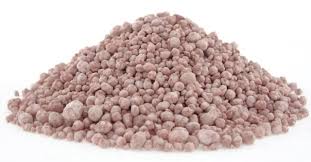
Aug . 11, 2024 09:12 Back to list
Top Recommendations for High-Quality Organic Nitrogen Fertilizers for Healthy Plant Growth
The Best Organic Nitrogen Fertilizers Boosting Soil Health and Plant Growth
In the quest for sustainable agriculture and gardening practices, organic nitrogen fertilizers have gained significant attention. They not only enhance soil fertility but also promote healthy plant growth without the harmful side effects associated with synthetic fertilizers. Understanding the best organic nitrogen fertilizers can help farmers and gardeners maximize their yields while preserving the health of their ecosystems.
What is Nitrogen Fertilizer?
Nitrogen is one of the essential macronutrients that plants need for growth. It plays a critical role in the formation of chlorophyll, amino acids, and nucleic acids. A deficiency in nitrogen can lead to stunted growth, yellowing leaves, and poor yield. Therefore, providing an adequate supply of nitrogen through fertilizers is crucial for robust plant development. Organic nitrogen fertilizers release nitrogen slowly, improving soil structure and microbial activity while reducing the risk of nutrient leaching and water pollution.
Types of Organic Nitrogen Fertilizers
1. Animal Manures One of the most traditional sources of organic nitrogen is animal manure, including cow, horse, chicken, and sheep manure. These manures are rich in nitrogen and not only provide nutrients but also improve soil organic matter, leading to enhanced soil structure and water retention.
2. Compost Compost, made from decomposed organic matter, is another excellent source of nitrogen. While it may contain lower concentrations of nitrogen compared to raw manures, its benefits lie in the fact that it enhances overall soil health. Compost benefits the soil by adding essential microbes, improving aeration, and increasing moisture retention.
3. Bone Meal Although primarily known for its phosphorus content, bone meal also provides a moderate amount of nitrogen. It is made from ground animal bones and is particularly beneficial in supporting root development and enhancing flowering.
best best organic nitrogen fertilizer

4. Blood Meal Blood meal is a highly concentrated organic nitrogen source derived from dried animal blood. It typically contains about 12% to 15% nitrogen and acts quickly to deliver nutrients to plants. However, due to its high concentration, it should be used sparingly to avoid nitrogen burn.
5. Fish Emulsion Fish emulsion is another popular organic fertilizer that contains nitrogen along with other essential nutrients. It is made from the byproducts of fish processing and is often used as a foliar spray. Its liquid form allows for quick absorption by plants, making it an effective choice for promoting growth.
6. Alfalfa Meal Alfalfa meal is derived from the alfalfa plant and is a great source of nitrogen and other micronutrients. It also contains a growth hormone called triacontanol, which can stimulate plant growth. This makes it a perfect addition to any soil amendment program.
Benefits of Using Organic Nitrogen Fertilizers
Using organic nitrogen fertilizers offers numerous benefits. Firstly, they contribute to the development of soil health by enhancing microbial populations and improving soil structure. Secondly, they reduce the risk of environmental pollution, as they are less likely to leach into waterways compared to synthetic fertilizers. Additionally, organic fertilizers tend to have a longer residual effect, meaning their benefits persist over time.
Conclusion
In conclusion, selecting the right organic nitrogen fertilizer can significantly impact the growth and health of your plants. By understanding the various options available—ranging from animal manures to blood meal—farmers and gardeners can make informed decisions that not only support their plants but also nurture the environment. Embracing organic practices not only leads to healthier crops but also fosters sustainable ecosystems, contributing to the health of our planet for generations to come.
-
Premium Organic Manure Compost for Eco Gardens
NewsAug.01,2025
-
Organic 10-10-10 Fertilizer | Balanced Plant Nutrients
NewsJul.31,2025
-
Premium Amino Acid Fertilizer | Rapid Plant Growth Booster
NewsJul.31,2025
-
10 10 10 Fertilizer Organic—Balanced NPK for All Plants
NewsJul.30,2025
-
Premium 10 10 10 Fertilizer Organic for Balanced Plant Growth
NewsJul.29,2025
-
Premium 10 10 10 Fertilizer Organic for Balanced Plant Growth
NewsJul.29,2025
